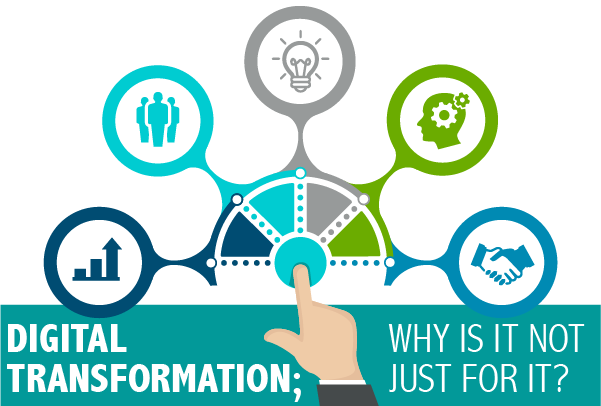I’ve struggled for a long time with the way the current marketplace uses the phrase “Digital Transformation”. I totally get that there is a lot happening in AI and data management and user centric (often online) interactions… but is that really digital? And more to the point, even if that is digital… is that what is really transforming?
I have seen many organisations look to start with the digital (or I could say technical) solution or tool first, instead of really understanding what the core value and impact of the transformational activity is.
I think the answer sits in a rich understanding of what transformation means rather than digital.
This is the definition of transformation from the Business English section of the Cambridge dictionary: Transformation: the process of changing completely the character or appearance of something in order to improve it.
Transformation is a process of complete change, and processes require actors. Transformations do not happen by consequence, they require active engagement from all impacted and influencing stakeholders. As a result of all stakeholders engaging in the change our organisations will improve.
Sadly common vernacular in organisations is casual outsidering (that insidious human habit that is the cause of sexism, racism, etc.) and build an “us-and-them” culture between technology staff and non technology staff, or “IT and the business”. This divide is perhaps the first thing that needs to be broken down before digital transformation can make solid progress. IT can only play its part in this change, but the entire organisation needs embrace the transformation for it to be truly successful.
Leaving aside the internal social and cultural drivers for transformation, the environment we work in is demanding increased proximity of all areas of our organisations as behind the scenes processes require faster and more accurate completion in the eyes of the end users. “Why isn’t this form online” has become “you already have my data, why wasn’t this form auto populated”, and is now becoming “why do you even need me to fill out this form if you already know the answer?”
Granted that last question may be misinformed, there are still currently some legislative divides between which parts of the government can share which pieces of information with other parts. There is cause to believe that many of the reasons for these boundaries could be eliminated by appropriate data governance instead of legislation. Better process management, without human intervention, could lead to the removal of legislative controls designed to prevent people misusing the data.
The environment is changing, as are user demands. These changes to the way our organisations use data will require changes to many non technology roles to better handle process exceptions and even complete changes to… well… everything.
Thus for transformation it’s far more than just an IT thing. IT are just one group of stakeholders, and in most cases they’re role is to be the enablers of much broader change initiatives. I’ll make a potentially bold claim. In the future IT roles and Business roles won’t exist in government. Self service will be the norm, and the only time a taxpayer will need to interact with a person is when there is a technology issue. IT and Business roles will all be one and the same as everyone needs to know enough about the other so the whole process infrastructure can be maintained. And I for one welcome the idea that our government is cheaper faster and more responsive as a result… If we can transform it.






Leave A Comment